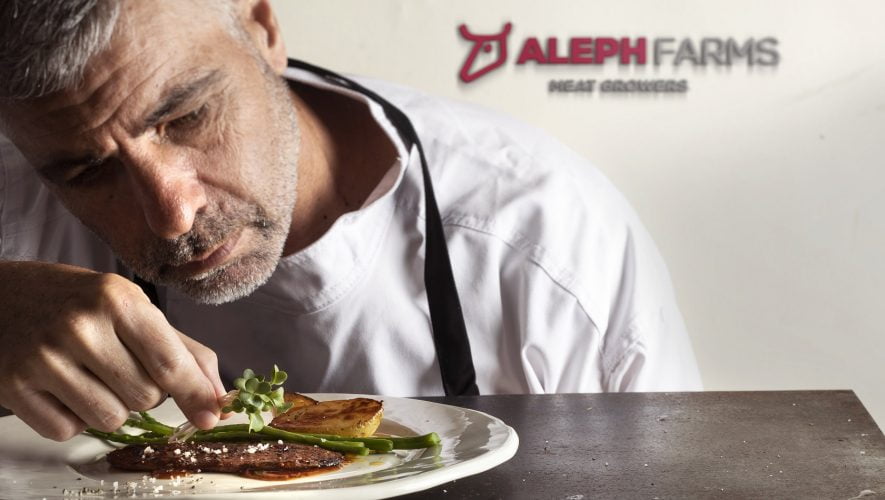Aleph Farms lays the foundation towards soft launch of its cultivated beef steak and has entered the first phase in the construction of its BioFarm™
Aleph Farms Ltd. is heading towards the transfer of its commercial product – thin-cut beef steaks – into proprietary platform suitable for mass cultivation. The quality steaks, grown directly from non-GMO cells of a living cow, boast nutritional, culinary, and sensory attributes of meat in terms of texture, flavor, and aroma. The company has developed five proprietary modules for its unique mass production platform, set to bring the product to cost parity with conventional meat at scale.
The prototype of its commercial product will be first introduced at the Asia-Pacific Agri-Food Innovation Summit on November 20th in Singapore as part of a virtual cooking demonstration hosted by Aleph Farms’ resident chef and VisVires New Protein VC. “One of the big challenges of cultivated meat is the ability to produce large quantities efficiently at a cost that can compete with conventional meat industry pricing, without compromising on quality. We have developed five technological building blocks unique to Aleph Farms that are put into a large-scale production process, all patented by the company,” says Didier Toubia, Co-Founder and CEO of Aleph Farms.
Meat cultivation: process of design that is inspired by nature
Aleph Farms’ unique platform for cultivating steaks effectively mirrors the natural process of tissue regeneration processes that occur in the animal’s body, but outside of it and under controlled conditions. The process is designed to use a fraction of the resources required for raising an entire animal for meat, and without antibiotics. To successfully grow whole pieces of meat, compared to minced meat product, the company mimics the extra-cellular matrix found in animals with a plant-based matrix that enables the cells to grow and form structured tissues of meat. Its ‘cell-banks’ yield an unlimited source of pluripotent, non-GMO cow cells’ for growing large quantities of meat without the dependency on living animals. Aleph Farms has designed patented tissue cultivators to facilitate the biological process occurring in vivo, providing the warmth and basic animal-free elements needed to build tissue in nature. This includes water, proteins, carbohydrates, fats, vitamins, and minerals.
The gastronomical experience of Aleph Farms’ steak
The company has diligently perfected the structure of its product so that it embodies the familiar texture, taste, cooking behavior, as well nutritional qualities of conventional slaughter-based steaks. “Aleph Farms is establishing a new category of meat, imbued with its own culture and a new world of meaty experiences,” enthuses Amir Ilan, the company’s Resident Chef.
“It’s not enough to just make a protein that will fill the nutritional gap; we need to capture the fullness of the meat-eating experience,” adds Toubia. As a French native with roots in food culture, and having studied food engineering in Dijon, Toubia brings his appreciation of gastronomic tradition to his unique cultivation technology. “Meat can be cultivated from cells isolated from different animal breeds, have different cuts, and it elicits different emotions. We see Aleph Farms as crafters of experiences.” Toubia concludes.



